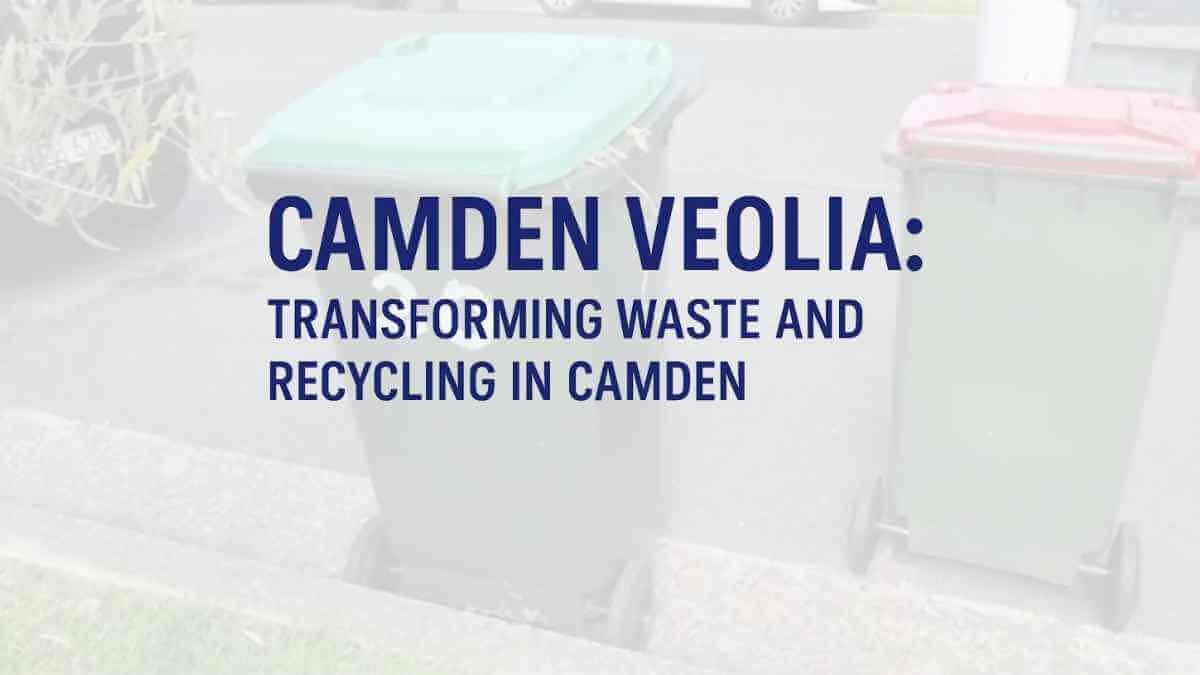Camden Veolia: Transforming Waste and Recycling in Camden

The partnership between Camden Council and Veolia has become one of the most recognisable public service collaborations in London. Veolia, an environmental solutions company operating globally, is tasked with delivering waste collection, recycling, street cleansing, and bulky waste services for Camden residents. Over the years, the contract has not only been about taking rubbish away but about reshaping how a busy, diverse borough manages sustainability, reduces emissions, and raises recycling rates.
The Camden Veolia Partnership
Camden first appointed Veolia to provide integrated waste and recycling services in 2017. The arrangement included household recycling and rubbish collection, street sweeping, cleansing of public spaces, and bulky item collection. Camden Council’s aim was clear: improve recycling, reduce carbon emissions, and modernise services in line with London-wide environmental goals.
In 2025, Camden extended Veolia’s contract for another eight years. This decision was taken after assessing performance, environmental targets, and the need for continuity in a borough as densely populated and complex as Camden. The extension allows both sides to plan long-term strategies, including the rollout of more electric collection vehicles and innovative recycling initiatives.
Waste and Recycling Services
Household Collections
Residents of Camden benefit from weekly rubbish and recycling services. Veolia provides distinct bins and bags for mixed recycling, food waste, garden waste, and general rubbish. The aim is to simplify household separation while ensuring materials reach the correct recycling streams.
Garden Waste
Garden waste collections, once optional, are now structured under a paid subscription scheme. Routes were updated in April 2025 to optimise efficiency, meaning residents need to check revised collection schedules. This restructuring reduces unnecessary trips and fuel usage.
Bulky Item Collection
Bulky items such as furniture, mattresses, and appliances are also managed by Veolia. Camden residents can book a collection slot, and Veolia’s teams ensure items are either recycled where possible or safely disposed of.
Environmental Commitments
Electric Collection Vehicles
One of the standout initiatives is the introduction of electric rubbish and recycling trucks. These vehicles reduce emissions, cut noise pollution, and support Camden’s climate action plan. The move also sets Camden apart as one of the first boroughs to significantly electrify its waste fleet.
Recycling Targets
Camden faces unique challenges: high numbers of flats, transient populations, and limited storage space for recycling bins. Despite these, Camden has worked to lift recycling rates beyond 28% in 2021/22, with a target of 35% in the mid-2020s. Veolia’s role is central, from providing clearer guidance to residents to redesigning recycling routes.
Tackling Fly-Tipping
Street cleanliness remains a major concern. Veolia’s teams, supported by Camden enforcement officers, respond to fly-tipping, overflowing bins, and illegal dumping. Community campaigns, CCTV, and fines all back this service, but Veolia’s operational response is what keeps public spaces safe and tidy.
Challenges in Urban Waste Management
Inner London boroughs like Camden experience unique waste management issues:
Population density means bins fill faster and collection points are limited.
Housing type: Flats above shops often lack proper storage for recycling.
Transient residents such as students and short-term tenants may not fully understand Camden’s recycling systems.
Traffic congestion can delay collections and reduce operational efficiency.
Veolia’s experience in managing city environments across the globe positions it well to tackle these challenges. However, Camden Council continues to push for higher standards, especially as climate targets tighten.
Community Engagement
Resident Support
Camden and Veolia invest heavily in public education. From distributing clear recycling guides to running school workshops, the message is simple: waste reduction starts at home.
Accessibility
For D/deaf and hard-of-hearing residents, services such as SignVideo make contacting Veolia easier. This inclusivity ensures all residents can raise issues, book collections, or access information.
Feedback Channels
Residents report missed collections, fly-tipping, or service concerns via Camden Council’s website or Veolia’s helpline. Transparency in how quickly these issues are resolved remains crucial for public trust.
The Extended Contract to 2033
Camden’s decision to extend the Veolia partnership until 2033 demonstrates confidence in service delivery but also raises expectations. The long-term contract enables large-scale investment in:
Fully electric or low-emission fleets.
Improved recycling infrastructure.
Data-driven waste collection, using sensors to track bin levels.
Circular economy projects, where waste materials are reused or repurposed locally.
This forward-looking approach ensures Camden is aligned with London’s wider environmental strategy and contributes to the UK’s climate commitments.
Looking Ahead: Innovation and Sustainability
Future opportunities for Camden Veolia include:
Smart Bins: Technology that alerts collection teams when bins are nearly full.
Community Recycling Hubs: Local drop-off points for hard-to-recycle materials like batteries or textiles.
Circular Projects: Partnerships with social enterprises to repair and reuse items collected from bulky waste streams.
Carbon Reporting: Providing residents with updates on how their recycling efforts reduce emissions, building motivation through transparency.
By combining operational excellence with innovation, Camden Veolia can transform waste services into a model of sustainable urban management.
Conclusion
The story of Camden Veolia is more than a tale of bin collections and rubbish trucks. It reflects Camden Council’s determination to provide efficient, environmentally conscious services in one of London’s busiest boroughs. From electrifying its fleet to tackling the challenges of high-density housing, the Camden Veolia partnership demonstrates how public and private collaboration can reshape waste management.
With the contract extended to 2033, the next decade promises deeper innovation, stronger community engagement, and continued progress toward a cleaner, greener Camden. If successful, Camden Veolia will stand as a model for other UK boroughs seeking to balance modern service delivery with urgent climate goals.



